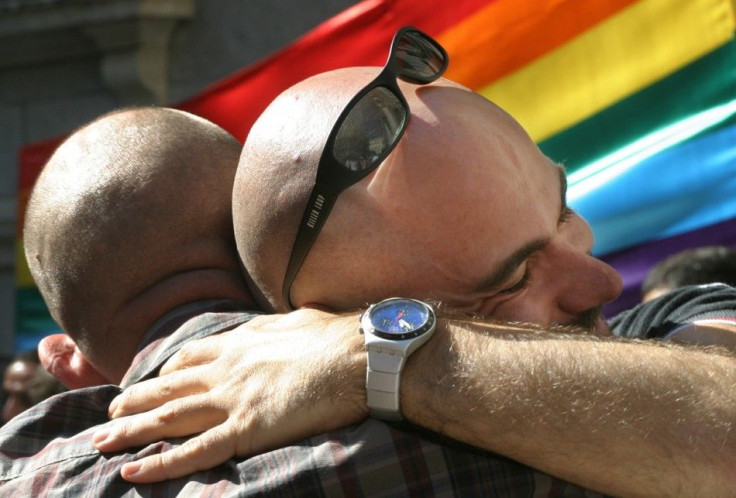California's Same-Sex Marriage Ban Ruled Unconstitutional

A federal appeals court in San Francisco Tuesday found Proposition 8, the ballot measure that ended same-sex marriage in California, unconstitutional.
A three-judge panel for the Ninth Circuit Court of Appeals struck down the voter-backed amendment to the state's constitution limiting marriage to heterosexual couples.
The appeals court, in a 2-1 decision, said Prop 8 lacked any legitimate reason to exist, other than to take away gay Californians' right to legally wed. California voters in 2008 approved Prop 8 with 52 percent of the vote, amending the state constitution to limit marriage to heterosexual couples. California's Supreme Court had opened the door for same-sex marriage earlier that year.
It stripped same-sex couples of the ability previously possessed to obtain from the state, or any authorized party, an important right -- the right to obtain and use the designation of 'marriage' to describe their relationship, the court said. Nothing more, nothing less.
The court also took rejected arguments that same-sex marriage opponents had raised about religious freedom, parental rights and childrearing.
While a majority of Californians voted for Prop 8, the court said state residents had no power to single out a group for unequal treatment, without a legitimate justification, of a right as important as the right to marry.
Proposition 8 serves no purpose, and has no effect, other than to lessen the status and human dignity of gays and lesbians in California, and to officially reclassify their relationship and families as inferior to those of opposite-sex couples, the court said. The Constitution simply does not allow for laws of this sort.
Judge Stephen Reinhardt, a Carter appointmee, wrote the opinion for the court; Judge Michael Hawkins, a Clinton appointee, sided with overturning Prop 8 and Judge Randy Smith, tapped by George W. Bush, upheld the ballot measure.
Tuesday's ruling affirmed a 2010 from U.S. District Court Chief Judge Vaughn Walker, a Reagan appointee who found Prop 8 to be unconstitutional. Same-sex marriage opponents appealed Walker's ruling and also tried to vacate his order, arguing he should have recused himself from the case because he is gay and has a long-time partner; the Ninth Circuit rejected those arguments.
Beyond California
It is unclear how the Ninth Circuit's ruling will affect other states within its jurisdiction. The appeals court is anchored in California, but it casts a wide net covering the all of the West Coast states, Nevada, Montana, Idaho, Arizona, Hawaii and Alaska.
Six of those states have passed constitutional amendments banning same-sex marriage, but the Ninth Circuit's ruling seems tailored to Prop 8. California was the only state to pass the constitutional amendment after the state Supreme Court ruled in favor of same-sex marriage.
Supporters of Prop 8 have some options going forward. They can test their luck before all 11 judges sitting on the historically liberal circuit, a review called en banc, or petition the U.S. Supreme Court.
© Copyright IBTimes 2024. All rights reserved.











